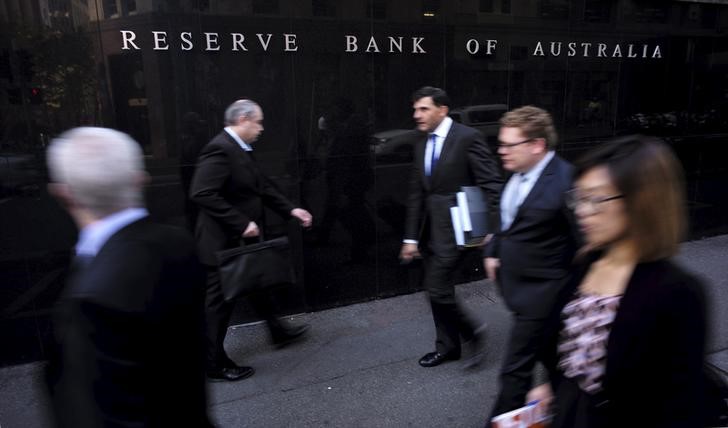* RBA cuts cash rate 25 bps to 1.75 pct, first easing in a year
* Cites surprisingly low inflation, subdued wages growth
* A$ sinks over a cent, market wagers on further move to 1.5 pct
By Wayne Cole
SYDNEY, May 3 (Reuters) - Australia's central bank cut interest rates to an all-time low of 1.75 percent on Tuesday, the first easing in a year as it seeks to restrain a rising currency and insulate the economy from creeping deflation.
The Reserve Bank of Australia's (RBA) quarter-point cut sent the local dollar down over a full U.S. cent to $0.7574 as markets had only seen an easing as a 50-50 chance.
Speculation of a possible cut flared last week when government data showed inflation had slowed far more than expected in the first quarter of the year.
Underlying inflation dropped to a record low of 1.5 percent, taking it well below the RBA's long term target band of 2 percent to 3 percent and effectively pushing real rates higher.
"Inflation has been quite low for some time and recent data were unexpectedly low," said RBA Governor Glenn Stevens, in a brief statement after the bank's May policy meeting.
"While the quarterly data contain some temporary factors, these results, together with ongoing very subdued growth in labour costs and very low cost pressures elsewhere in the world, point to a lower outlook for inflation than previously forecast."
The local dollar has also been proving firmer than the RBA desired, due in part to the aggressive easing of other central banks notably in the euro zone and Japan. A higher currency hurts tourism and foreign students seeking education in Australia, while also pushing down import prices and, hence, inflation.
All of which argued for at least one cut in rates to offset these tighter financial conditions. Indeed, markets were quick to price in the possibility of a further move to 1.5 percent 0#YIB: in the next few months.
The easing also comes just hours before the conservative government of Malcolm Turnbull reveals a budget that is considered crucial for his chances in a likely July election.
Normally a rate cut and resulting falls in mortgage rates would be considered a political positive in Australia. Yet it would also raise an awkward question - if the economy was doing as well as Turnbull claimed, why would it need lower rates?
